Next year, the CCP (Chinese Communist Party) will hold its 20th National Congress, and Xi Jinping is trying his best to secure a third term in office. In the meantime, one of his biggest concerns may be his own safety.
Two Teacups
At the CCP’s “Two Sessions” meeting in March 2021, two teacups were placed in front of Xi, while Premier Li Keqiang and other officials had only one teacup in front of them.Two teacups appeared as well in all other meeting rooms where Xi attended separate group meetings.
Four Men in Black
On Feb. 10, the day before Chinese New Year’s Eve, a gathering was held in Beijing by senior CCP officials to celebrate the coming Chinese New Year.One Hundred People in Black
According to an RFI report, on March 10, 2020, on the 48th day of Wuhan’s lockdown, Xi inspected the city. That afternoon, Xi went to the East Lake Garden community. The community’s social media group posted an “emergency notice,” which read that police would enter homes of residents “for security checks above the ninth floor,” and that they would “stay at your home for about an hour.” The notice asked residents to “actively cooperate with the police while they do their job.”Radio Free Asia reported on March 10 that some local residents in East Lake Garden community said that there were police “sitting on our balcony and they wouldn’t allow us to look (outside).” One local resident said that police came “knocking on the door at 9 a.m. that morning,” and another resident said that “snipers are all on the roofs of the buildings.”
Over 10,000 Security Personnel
When Xi visited Hong Kong for three days in 2017 on the 20th anniversary of the handover, the Hong Kong government used more than 10,000 police officers to ensure Xi’s safety. When Xi’s predecessor, Hu Jintao, visited Hong Kong in 2012, only 3,000 police officers were present.As early as March 2017, police in Guangdong, Hong Kong, and Macau had launched a joint operation named Thunderbolt 17, a marathon anti-triad operation to prepare for Xi’s visit to Hong Kong.
When Xi arrived in Hong Kong on June 29, he traveled in a bulletproof BMW 7 Series car provided by the Hong Kong police.
Police helicopters, boats, and snipers were stationed along the route of Xi’s visit. Various police forces, including the SDU (Special Duties Unit), Police Tactical Unit, and Counter-Terrorism Response Unit were all standing by.
Six Underlying Concerns to Xi’s Personal Safety
Political Enemies
The biggest concern for Xi’s security arises from his biggest political enemies, a political faction within the CCP headed by Jiang Zemin and Zeng Qinghong.Military Officers
Before Xi came to power, Xu Caihou and Guo Boxiong, the two former vice-chairmen of the Central Military Commission (CMC), made huge fortunes by taking bribes in exchange for promotions and other benefits. Guo Zhenggang, son of Guo Boxiong, reportedly said, “More than half of the army’s cadres were promoted by my family.” Although Xi purged over 160 generals, many of those promoted and appointed by Xu and Guo are still in office.Political and Legal Officials
Since coming into power, Xi also purged the CCP’s political and legal system. In the 22 years from 1999 to 2021, the four Secretaries of the Political and Legal Committee, Luo Gan, Zhou Yongkang, Meng Jianzhu, and Guo Shengkun, were all close associates of Jiang and Zeng. Many of the people promoted and reappointed by them are still working in the political and legal system.Second and Third Generation Reds
After Xi arrested and imposed a severe sentence on Bo Xilai, a second-generation red (children of revolutionary-era CCP leaders), all the descendants of the Bo family may become a problem for Xi.Mafia Mobs and Criminal Syndicates
Under the 72-year oppressive and deceitful rule of the CCP, mafia mobs, triads, and criminal syndicates have emerged in the communist state.As reported by Xinhua News Agency, Ma Shaowei, known as the “invisible richest man” of Qinghai province, and “Xi Ba Tian,” which literally translates as “the tyrant in the west,” and his Xingqing Industry and Trade Engineering Group, are “suspected of illegally buying, storing and using 32.5 million kilograms of explosives and more than 65 million detonators over the past ten years.”
People From All Walks of Life Suppressed by the CCP
An ever-growing list of people hold grievances against the CCP, including: Xinjiang Uyghurs, Hongkongers, Tibetans, Mongolians, Taiwanese, citizen journalists, June 4 democracy activists, university teachers and students, human rights lawyers, private entrepreneurs, Christians, financial refugees, veterans, teachers who demand unpaid wages, homeowners whose homes have been forcibly demolished, business owners who have been victimized, farmers who’ve lost their land, unemployed workers, petitioners, and victims of counterfeit and shoddy products.Can Xi Protect Himself by Preserving the CCP?
On Dec. 7, 2012, the 23rd day after Xi became the head of the CCP, he left Beijing for inspections and chose Shenzhen as his first stop. The People’s Daily reported, “There was no making fuss, no road closures, no disturbances, no red carpets, no welcome banners, no escorts whatsoever. ”The Nanfang Daily, or the Southern Daily in English, reported that Xi took the lead in strictly implementing “An eight-point code to cut bureaucracy and maintain close ties with the people” of the Politburo, and “arrived quietly with few escorts.”
Although Xi Jinping is now in a powerful position, he is so worried about his personal security that he does not feel safe at all, as described by a Chinese saying: “the whispering of the wind and the cries of cranes are enough to make every plant appear as enemy troops lying in ambush about to attack.”
In fact, the biggest threat to Xi’s life and safety comes from the CCP itself.
Since communist dictator Jiang Zemin launched a massive persecution campaign on July 20, 1999, against Falun Gong practitioners who believe in the principles of truth, compassion, and forbearance, Falun Gong practitioners have been thinking about why the CCP did this.
Throughout its history, the CCP has been a mechanism of democide. Xi’s father, Xi Zhongxun, was nearly buried alive during the CCP infighting in the 1930s. He was branded as the head of an “anti-Party group” during the CCP infighting in the 1960s and was punished for 16 years. He was dismissed before the expiration of his tenure and “exiled” to Shenzhen during the CCP infighting in the 1990s.
Nonetheless, after Xi Jinping became the head of the CCP, he seemed to have forgotten his father’s experience and fell back into the vicious circle of infighting. If he does not fight others, others will fight him.
After 100 years of infighting, the CCP has come to a point where it is fraught with problems or flaws. When Jiang Zemin, the most corrupt within the top corrupt echelons of the CCP’s party, government, and military, was in power, the CCP began to move toward total and complete corruption. Hu Jintao was in power for ten years, but he was only a puppet chairman during those ten years. Xi has now been in power for more than eight years, and the CCP is in full crisis and faces final disintegration.
Today’s CCP is like a rotten apple, already rotten to the core. Xi thought that by preserving the party, he could preserve his power and save his life. However, when he looks around, all he can see are enemies, both inside and outside the party, and both in China and abroad. How is it possible for him to be safe when there are enemies everywhere?
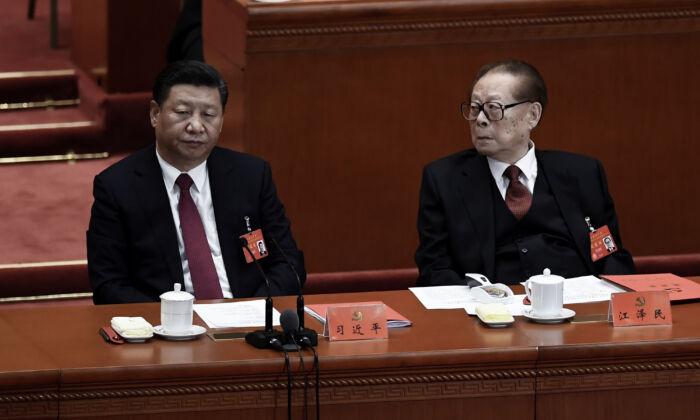
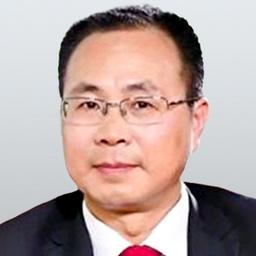
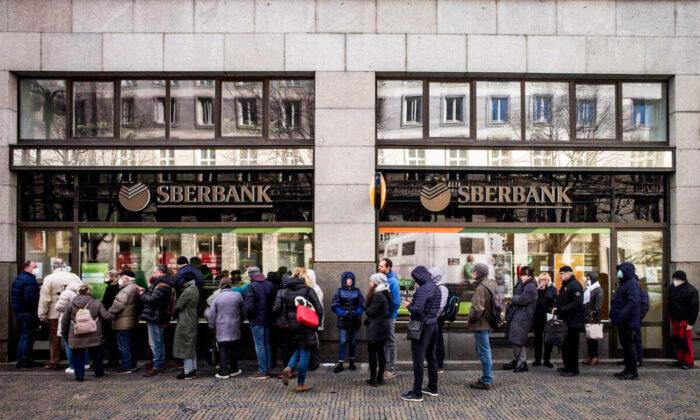
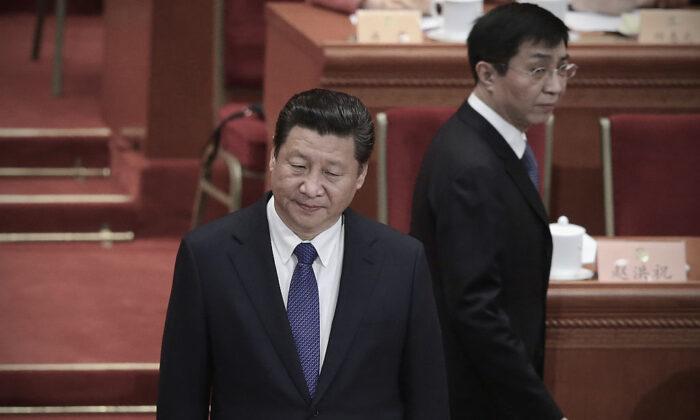
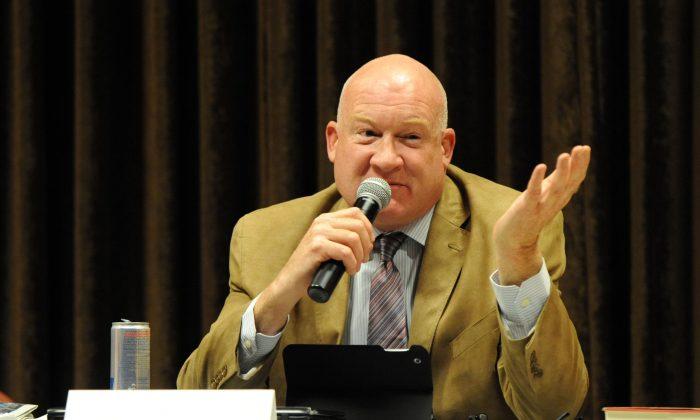
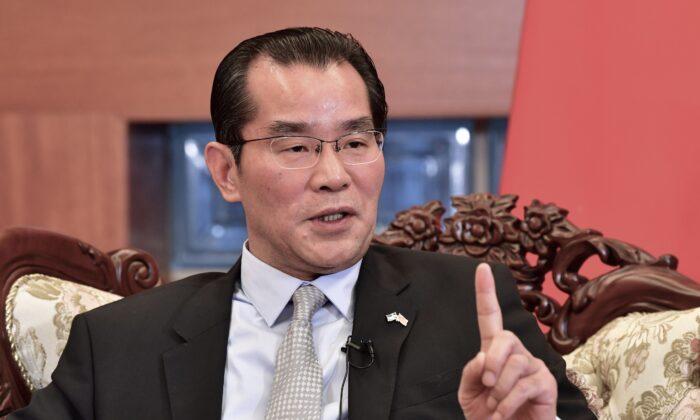
Friends Read Free